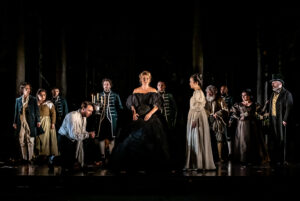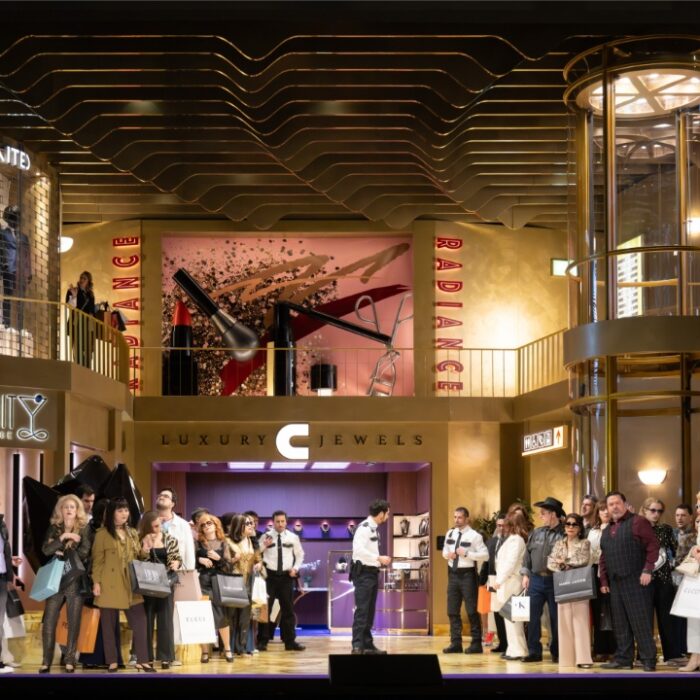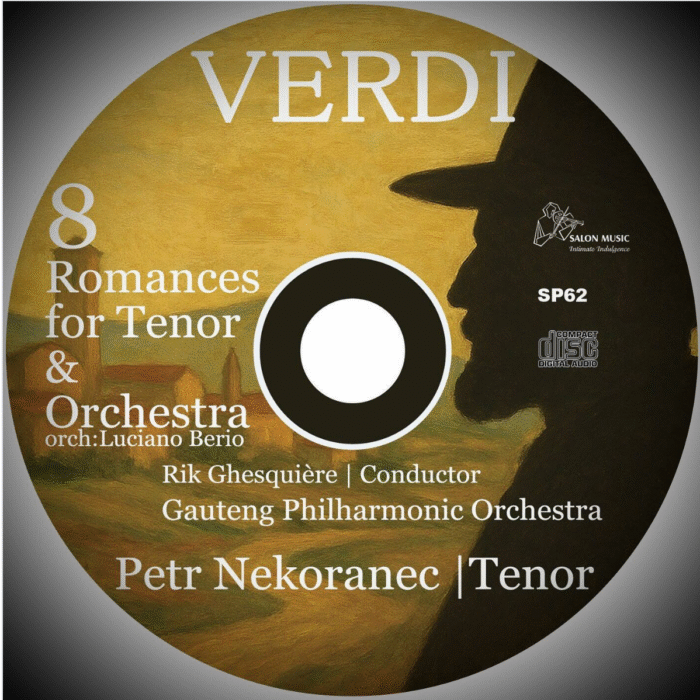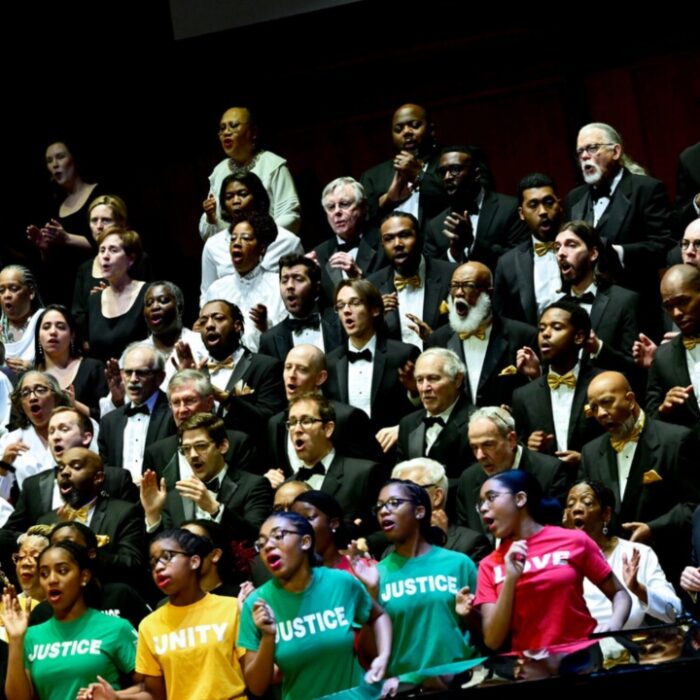
Royal Opera House 2024-25 Review: Le Nozze di Figaro
Mixed revival opens Covent Garden 2024-25 season
By Mahima Macchione(Credit: Clive Barda)
As marriages go, this wasn’t one made in heaven.
But despite an uneven performance, it ultimately won the audience over and did have moments of striking musical beauty. As the opening night for the 2024-25 season at Covent Garden, the revival of David McVicar’s “Le nozze di Figaro” did predictably well, and filled the house on a Monday evening. This is a production that premiered in 2006 and is still going nearly 20 years later, revived by the director himself with designs by Tanya McCallin and lighting by Paule Constable. Whether this was a good choice with which to open the season and show the company’s vision for the future (now that Antonio Pappano is gone), is another question.
Sans Pappano
The staging places the action vaguely in the 18th century, and uses architectural features to foreground the class war at the heart of the work. Act one opens with the Count’s palatial home, filled with dutiful and elegantly attired servants. This is soon set against the radically more modest quarters he has strategically allocated to Figaro and Susanna – a visual statement that can’t easily be missed. McCallin’s set designs were striking at the start but later a bit puzzling (a metal poster bed covered with translucent fabric felt a touch out of place). Some of the costumes, especially the Countess’s, seemed more Cinderella-esque than historically aware.
Julia Jones offered a perceptive reading of Mozart’s late masterpiece, bringing out the color and nuance in the score – it almost felt like there were period instruments in the pit. But from the first few bars, it was clear the pace set was definitely on the faster side, and although the Orchestra of the Royal Opera played with precision and brought out the work’s texture, it did cause some strain for singers later on.
Luca Micheletti was a charismatic Figaro, with a rich and warm timbre and considerable stage presence. His “Se vuol ballare” though could have been more fiery and generally more memorable, given that at that point he’s just discovered that his employer is planning to sleep with his wife-to-be. He did raise his game in “Non più andrai,” delivered with more musical panache.
Ying Fang as Susanna lacked dramatic verve, made even clearer in “Via resti servita, madama brillante,” which should be a venomous exchange with Marcellina. But that was largely compensated by her singing, her voice sweet and pure, which later provided some magical moments. Alone on stage, she delivered “Deh vieni non tardar” at the end of Act four, making it clear why she had been cast for her Royal Opera debut, her round and silky top notes easily filled the auditorium and soared with lyricism. It was surely the evening’s highlight, also measured by the audience’s reaction. Heavenly singing aside, there also wasn’t much chemistry between the couple.
Ginger Costa-Jackson also in her house debut was a compelling Cherubino, bursting with the energy of youth, even if the singing at the start with “Non so più” was a little unsteady. If she was not in fine form to begin with, she did become more assured later. “Voi che sapete” was more confidently delivered – and showcased a surprising ornamentation.
Standing Out
Huw Montague Rendall, a baritone decidedly on the rise in the industry, provided some refreshing stage presence as the aristocratic alpha male and lecherous Count Almaviva – constantly outwitted by his servants. His acting stood out and was as accomplished as his singing.
Maria Bengtsson was a poised and convincing Countess, stepping in for Jacquelyn Stucker at the last minute. Even if she gave a fine performance overall, her opening aria “Porgi amor” really suffered from Jones’s speedy tempos. The music had zero space to breathe, and what is normally a piece of staggering beauty, where she laments the loss of the Count’s love, felt like a sprint – totally devoid of emotion and of the reflective qualities it normally possesses. The magic just didn’t seem to be there, almost as if conductor and singer weren’t in synch. There was lots of energy though in the gorgeous trio “Susanna, or via sortite” performed with Rendall and Fang.
In the secondary parts, Rebecca Evans as Marcellina was born for the role and both Adrian Thompson as Don Basilio and Jeremy White as the drunkard Antonio were wonderfully cast.
Peter Kálmán was a credible Bartolo, delivering a vigorous “La vendetta.”
Isabela Díaz stood out in “L’ho perduta, me meschina” as Barbarina and Alasdair Eliott supported well as Don Curzio.
The Royal Opera Chorus, as ever, was on top form.
Overall, a mixed performance – a day of twists and turns in the Almaviva household proved not to lead to pure, wedded bliss.


